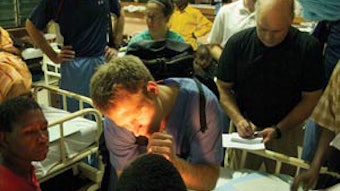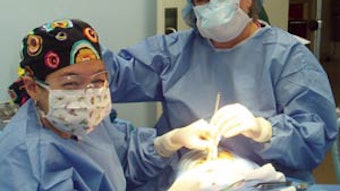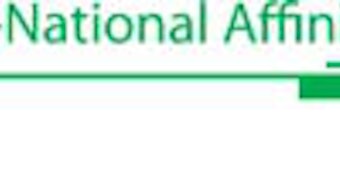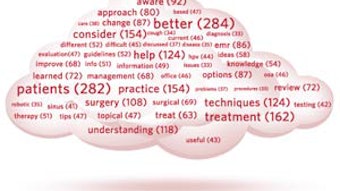Regulatory Advocacy
In March, otolaryngologists, other surgeons, and BOG members, assembled in Washington, DC, to advocate for a legislative policy platform that will help us to deliver quality patient care. As was true last year and is equally true this year, due to the continuing dialogue about the Affordable Care Act (ACA) and healthcare reform, our specialty had an opportunity to be heard on Capitol Hill, and we took it. Our members joined with 17 other societies under the Joint Surgical Advocacy Conference banner to be at the table and be heard. Now, it is time to address the other type of advocacy that our members require: the advocacy for health policy and issues related to the business of medicine. Legislators make the laws, but it is in the implementation of those laws where practical practice parameters are set. It is in these opportunities that member leaders with member support become the real entities at the table. A few individuals even become known among agencies for their persistence and devotion to the specialty and to the delivery of quality patient care. I would like to draw your attention to just how your Academy serves in the policy and regulatory arena: The Academy has the leading experts on coding and health policy issues relating to otolaryngology. Your professional staff and leaders have decades of experience in the field, are well-respected by national organizations (i.e., AMA) and federal agencies (i.e., CMS), and they work to maintain the Academy’s reputation while serving you. Although you may receive information about otolaryngology coding and health policy from other resources, I want to assure you that the Academy is your expert source of information on the latest issues that are crucial to your practice. You will certainly see this clearly in the updates each month in this publication, in items that you receive from our newsletter, in the latest AAO-HNS newsletter The News, and from member alerts especially for you such as on the RUC representation. Issues currently in process include the physician supervision issue. Your Academy reaches out to expert representatives within the Academy to gather information. When a coding or health policy issue arises and there are differences of opinions among members about how to move forward, your professional staff and leaders are making sure to take the time and effort to research the issue and gather data and information from a broad range of members who represent many different interests including the Board of Governors and the subspecialty societies. You can see that clearly reflected in this issue in the update of the 3P group about Zenker’s Diverticulum. Also I point out our collaboration with subspecialty societies to influence United Health Care’s guideline on septoplasty and turbinate resection. Together we have a better chance to gain momentum with national payers to improve coverage for important procedures benefiting and changing the lives of our patients. Advocating for membership as a whole. Your Academy professional staff and leaders are advocating for the membership as a whole. While they try to respond to your requests and concerns from your individual or group practices as quickly as possible, please keep in mind that they make decisions on priority efforts and how to move forward on controversial socioeconomic issues in a way that is most appropriate in the world of coding and health policy. This issue brims with policy information; there are several articles of primary importance to your practice. Use your member log-in at http://www.entnet.org/practice/ to have immediate information on regulatory and socioeconomic advocacy; the Business of Medicine; coding; quality and safety; and access to guidelines and clinical indicators (more about these in upcoming issues). And remember, unlike legislative calls for action, regulatory and health policy issues benefit most from your day-to-day practice data. You can engage best by supporting member leaders when they ask for this data. When you share reimbursement problems with the Academy staff, using the process and systems they have outlined (see page 40), you can advocate from your office and benefit the specialty and your patients. You will no doubt hear that some national medical groups may be willing to compromise important issues, like the Independent Payment Advisory Board (IPAB), in order to “keep a seat at the table.” However, the Academy remains strong in the face of such key harmful issues, and we feel our strength of conviction will serve both our members and their patients best. The complex environment of medicine requires more of each of us than it did yesterday. Sometimes that requires that we are heard in legislative venues for quality care. Sometimes that requires that we develop an understanding of the complex issues that bring about the best result for patient care. Your understanding and support make that difference.
 J. Regan Thomas, MD, AAO-HNS/F President
J. Regan Thomas, MD, AAO-HNS/F PresidentIn March, otolaryngologists, other surgeons, and BOG members, assembled in Washington, DC, to advocate for a legislative policy platform that will help us to deliver quality patient care. As was true last year and is equally true this year, due to the continuing dialogue about the Affordable Care Act (ACA) and healthcare reform, our specialty had an opportunity to be heard on Capitol Hill, and we took it.
Our members joined with 17 other societies under the Joint Surgical Advocacy Conference banner to be at the table and be heard. Now, it is time to address the other type of advocacy that our members require: the advocacy for health policy and issues related to the business of medicine. Legislators make the laws, but it is in the implementation of those laws where practical practice parameters are set. It is in these opportunities that member leaders with member support become the real entities at the table. A few individuals even become known among agencies for their persistence and devotion to the specialty and to the delivery of quality patient care.
I would like to draw your attention to just how your Academy serves in the policy and regulatory arena:
The Academy has the leading experts on coding and health policy issues relating to otolaryngology.
Your professional staff and leaders have decades of experience in the field, are well-respected by national organizations (i.e., AMA) and federal agencies (i.e., CMS), and they work to maintain the Academy’s reputation while serving you. Although you may receive information about otolaryngology coding and health policy from other resources, I want to assure you that the Academy is your expert source of information on the latest issues that are crucial to your practice.
You will certainly see this clearly in the updates each month in this publication, in items that you receive from our newsletter, in the latest AAO-HNS newsletter The News, and from member alerts especially for you such as on the RUC representation. Issues currently in process include the physician supervision issue.
Your Academy reaches out to expert representatives within the Academy to gather information.
When a coding or health policy issue arises and there are differences of opinions among members about how to move forward, your professional staff and leaders are making sure to take the time and effort to research the issue and gather data and information from a broad range of members who represent many different interests including the Board of Governors and the subspecialty societies. You can see that clearly reflected in this issue in the update of the 3P group about Zenker’s Diverticulum. Also I point out our collaboration with subspecialty societies to influence United Health Care’s guideline on septoplasty and turbinate resection. Together we have a better chance to gain momentum with national payers to improve coverage for important procedures benefiting and changing the lives of our patients.
Advocating for membership as a whole.
Your Academy professional staff and leaders are advocating for the membership as a whole. While they try to respond to your requests and concerns from your individual or group practices as quickly as possible, please keep in mind that they make decisions on priority efforts and how to move forward on controversial socioeconomic issues in a way that is most appropriate in the world of coding and health policy.
This issue brims with policy information; there are several articles of primary importance to your practice. Use your member log-in at http://www.entnet.org/practice/ to have immediate information on regulatory and socioeconomic advocacy; the Business of Medicine; coding; quality and safety; and access to guidelines and clinical indicators (more about these in upcoming issues). And remember, unlike legislative calls for action, regulatory and health policy issues benefit most from your day-to-day practice data. You can engage best by supporting member leaders when they ask for this data. When you share reimbursement problems with the Academy staff, using the process and systems they have outlined (see page 40), you can advocate from your office and benefit the specialty and your patients.
You will no doubt hear that some national medical groups may be willing to compromise important issues, like the Independent Payment Advisory Board (IPAB), in order to “keep a seat at the table.” However, the Academy remains strong in the face of such key harmful issues, and we feel our strength of conviction will serve both our members and their patients best. The complex environment of medicine requires more of each of us than it did yesterday. Sometimes that requires that we are heard in legislative venues for quality care. Sometimes that requires that we develop an understanding of the complex issues that bring about the best result for patient care. Your understanding and support make that difference.













